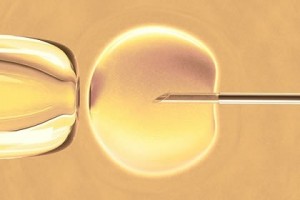 I have heard countless times that parents that undergo in vitro fertilization (IVF) must love their children so very much to go through such an expensive and invasive process to have children. I have no doubt that parents undergoing IVF believe they are doing what is best, but looking at the realities of IVF that many parents are not aware of, one has to wonder if IVF is really about the children at all.
I have heard countless times that parents that undergo in vitro fertilization (IVF) must love their children so very much to go through such an expensive and invasive process to have children. I have no doubt that parents undergoing IVF believe they are doing what is best, but looking at the realities of IVF that many parents are not aware of, one has to wonder if IVF is really about the children at all.
First IVF usually creates many more embryos than are needed. Lucky embryos get implanted into their mother’s womb. Meanwhile, others are discarded, donated to research or frozen and never get to finish their lives. Any “surplus” embryos that are frozen are filled with anti-freeze and then slowly cooled down to -196°C, where they are stored in containers of liquid nitrogen. Read that again. These “desperately loved and wanted” offspring are filled with anti-freeze and then frozen for later use.
If these frozen embryos are eventually “wanted” by their parents, they are thawed out and implanted. But the majority of embryos (upwards of 70%) that are cryopreserved are damaged by the process. Only 30-35% of embryos thaw with no damage. 20-25% do not survive at all. That means nearly one in four embryos that are frozen do not survive the process.
It is not just the freezing and thawing process that can be a problem for an IVF embryo. The laboratory is not the best place to start one’s life. Children conceived with IVF are are 9 times more likely to have the genetic disorder Beckwith-Wiedemann’s Syndrome. Some recent studies are suggesting that people conceived with IVF have different patterns of gene expression than those conceived naturally and so are at greater risk for major disease like obesity and diabetes later in life. It is estimated that 90% of IVF embryos have chromosomal abnormalities. Think about that statistic this way: IVF practitioners are creating human lives knowing that the majority will have major genetic problems and likely will not survive.
Even if everything goes well, an IVF embryo could still encounter trouble. Increasingly they are sent overseas by Fed Ex (and held by customs) to be implanted and gestated by a woman the parents have never met and cared for by a doctor a half a world away. An embryo may also be implanted into the wrong uterus and then summarily aborted, or sold over the Internet.
Embryos can even be lost by the IVF clinic. A recent storyof an IVF clinic in the UK “misplacing” a couple’s embryos reminds us of the peril that IVF embryos face everyday:
A fertility clinic in Kent is under investigation after reports that staff may have lost a woman’s embryos. Mrs Alison Austin-Hennessy said she and her husband Michael were informed by a consultant at the private Chaucer Hospital that their embryos had been misplaced….
Chaucer Hospital is run by BMI Healthcare and, according to the Daily Mail, an audit in March 2009 found that two embryos present in 2007 were now ‘gone’. The couple said they were not informed of this, however….
‘I was physically sick. For two or three days, I was ringing them up because I just expected them to be found’, said Mrs Austin-Hennessy.
In an interview with People magazine, Mrs Austin-Hennessy, who is 31 years old, said that she saw a note on the file that read ‘thawed’, leading her to believe that the embryos may have been implanted in another woman.
‘It’s heartbreaking to think another woman may be carrying – or have had – our biological child’, she said.
Increased risk of genetic problems, damage from being injected with anti-freeze and frozen, being lost or implanted into the wrong woman, sold over the Internet, discarded or donated to be destroyed in research. Is this treatment really what is “best” for our children? Is this how we treat our offspring and then call it love? With IVF on the rise, apparently so.



